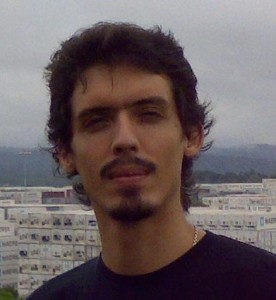As we have witnessed in the last month, there are moments in civic life that drive citizens to change and challenge institutions, to create solutions and to express their concerns about things that matter. In a short interview with Renata Avila for the Technology for Transparency Network, Manuel Aristarian, an Argentinian leading several different initiatives, shared his views on data and the tools to turn data into a valuable asset for citizens, to claim their rights and demand transparency. He is the man behind Gasto Público Bahiense in Bahía Blanca and GarageLab.

Manuel Aristarian
When Manuel Aristaran (@manuelaristaran) heard the news about controversial contracts by the local government in the Argentinian city of Bahía Blanca, he explored its website and noticed that expenses by the municipality were simply not accessible: they were published in a long list and without tools to explore the data, and the format did not offer an efficient and effective way to watch the expenses. He decided to solve that problem and take transparency in Bahía Blanca to the next level, a more participatory one.
RA: Why did you start your project?
MA: I've always been interested in public policies and the real impact of data on how they're designed. After the news of some controversial purchases made by the government of Bahía Blanca broke out, I learned that its website contains information about some of the public contracts and purchases. Those documents were published as a long list, and the municipality's site doesn't provide any additional tools to explore that information. I thought that scraping, structuring and building a simple site to display that information (that is, transforming data into knowledge) might be a nice weekend project. After few weekends, I released Gasto Público Bahiense.
RA: Why did you get involved? What is your inspiration to dedicate your weekends to Gasto Público Bahiense?
MA: I think that involvement in public affairs is impossible if we don't understand how the government works. In other words, you can't commit to something you don't understand. Making government data available in a simple, concise and clear way is a step in the direction of “educating” people about their actions of their government.
RA: How are things changing after the release of your idea? Any success stories?
MA: There's been some reaction from inside the government: the city's legislative body declared the site of ‘municipal interest’. The project also succeeded in educating some government officials on the importance of publishing information in open and standard formats.
RA: Can you describe the obstacles and barriers you overcome to create your project?
MA: The lack of good government data and the lack of a solid legal framework that guarantees that they won't stop publishing the information just because. In Argentina, the OpenData grassroots movement is just starting. Together with other transparency NGOs, we're trying to think of ways of raising awareness about the importance of making governments more transparent and accountable. That, I hope, will lead to better policies of transparency and information.
RA: As a concerned citizen, do you want other local governments to do the same? Are you sharing your knowledge and expertise with others? Tell me more about “the power of shared code”.
MA: During an Open Data Hackathon, the code that powers Gasto Público Bahiense was used to display purchase data from other local governments in Argentina. Anyone can grab the code and adapt it. It just had to write the code that extracts the data from those cities’ websites.
RA: Your idea has inspired others to explore the potential of open data, right? How are people using your tool?
MA: Yes, different actors have used my project in many ways, for example hyperlocal news outlets used the website as source, businesses that sell to the local government use the site to check on their competitors, and when government purchases are available, consumers can access a good reference to compare prices.
It is well known that corruption in Argentina is widespread and hinders the political system and the economic growth, in spite of its highly educated citizens. However, “social entrepreneurs” like Manuel use their skills to foster change and invite others to copy the idea and do the same, everywhere.








1 comment